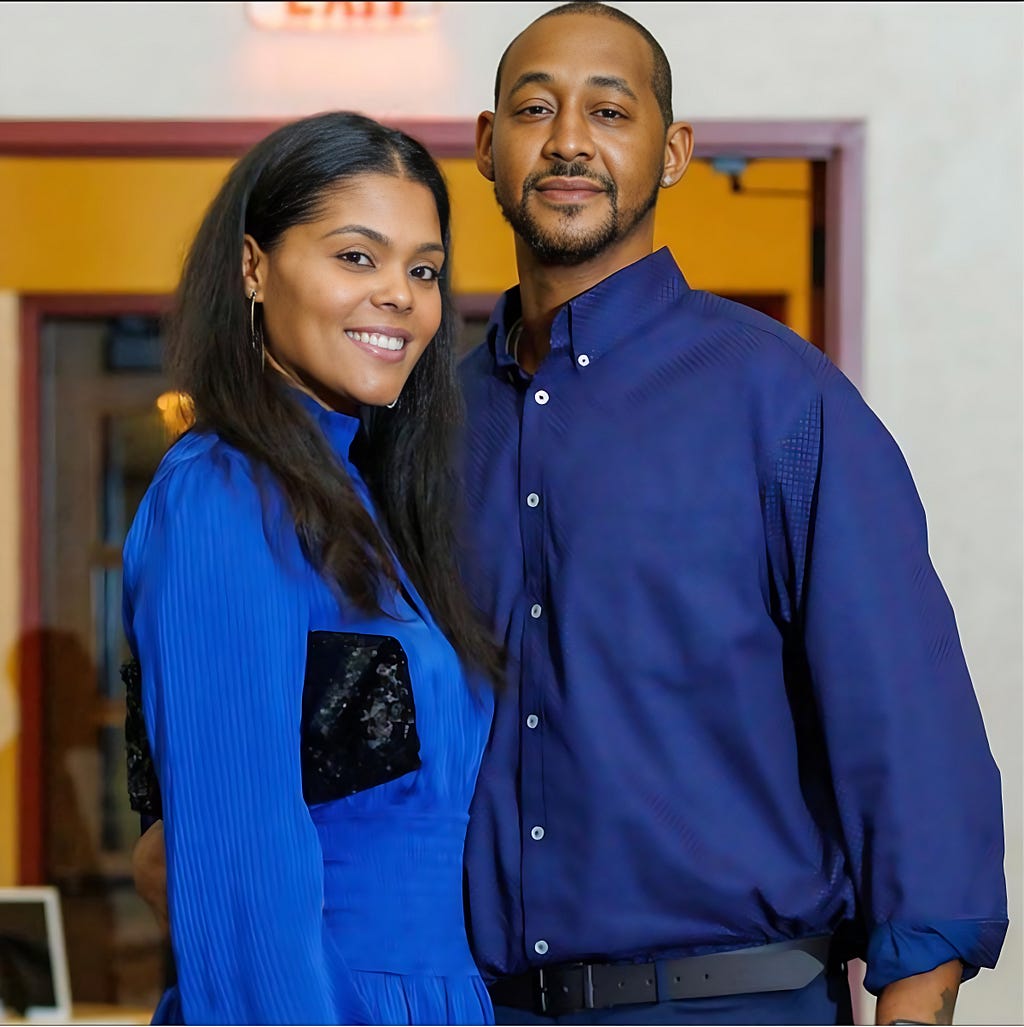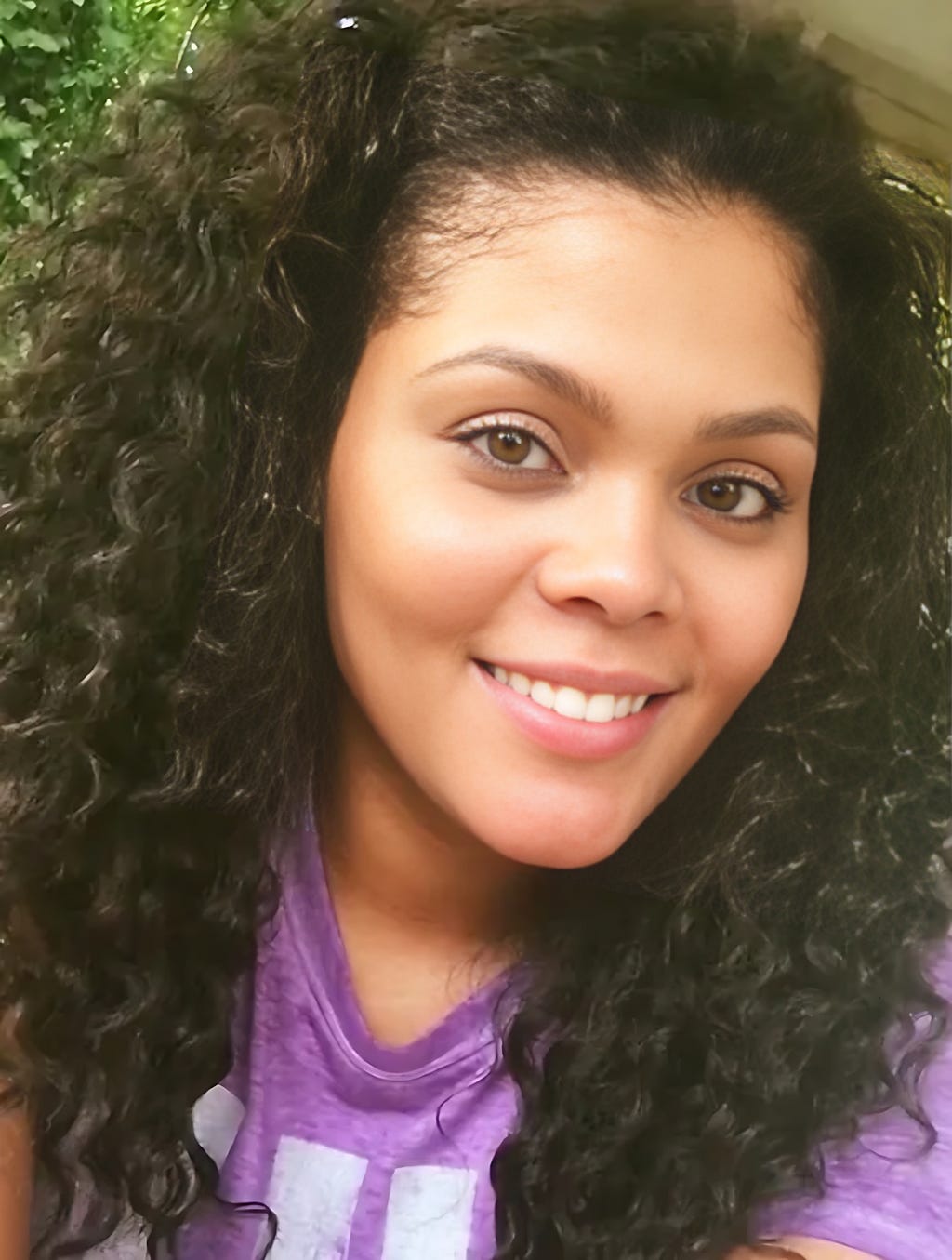Social Impact Heroes: Why & How T’erra Estes of ‘Teach Not Punish Family Resource Center’ Is Helping To Change Our World

…Valuing My Contributions: I have gained invaluable insights that have shaped my journey with Teach Not Punish. While there are lessons I wish I had known earlier, the experiential learning and organic development of the organization have been instrumental in our continued growth and impact within the Tulsa community…
As part of my series about “individuals and organizations making an important social impact”, I had the pleasure of interviewing T’erra Estes.
T’erra Estes is the founder and executive director of Teach Not Punish Family Resource Center, a Tulsa, Oklahoma-based organization that motivates families and professionals by teaching and providing experiences for vulnerable people to learn access replacement behaviors that foster trust and resilience through community, relationships, and self-development. T’erra’s effort to entrust others with cultivated skills stems from personal experiences of adversity and the belief that behavior change can be taught. Like the community she serves, T’erra overcame adversity by having access to quality training, education, community support, and positive reinforcement from others. Her experience as an Early Childhood and Special Education Teacher includes implementing research-based behavioral interventions, positive classroom management strategies, and social skills development based on real-world connections to create well-managed classrooms.
Thank you so much for joining us in this interview series! Can you tell us a story about what brought you to this specific career path?
The reason I chose my current career path is deeply rooted in my childhood and early adulthood experiences, both the high points and challenges that I faced. Some of my incredible memories include attending Michael Jordan Camp, traveling with my AAU team, and fostering positive relationships at school. However, I also encountered hardships such as instances of abuse and enduring a lifestyle with only basic necessities. These cumulative experiences led me to a place where I can empathize and connect with individuals going through adversity.
Moreover, the networks I have built over the years through my various activities now serve as valuable resources to support those who participate in our program. I aim to provide them with the essential tools and opportunities they need to overcome obstacles. As a result of these experiences, I have developed a strong sense of humility. This quality is vital when working in the community because it enables me to maintain genuine connections with those I serve.
Can you share the most interesting story that happened to you since you began leading your company or organization?
One of the most remarkable experiences since I began leading my organization was a convergence of two significant moments — one personal and one professional. It was a critical turning point in our organization’s history. In December 2019, I welcomed our youngest son into the world, but he was born with bilateral club feet, requiring regular visits to Shreveport for corrective treatments.
By March 2020, his feet had undergone the final procedure, just as the COVID-19 pandemic struck. This fortunate timing spared us the added complications of navigating travel and recovery while dealing with the pandemic’s impact. As COVID-19 swept across the world, my instinct was to understand our community’s needs and how Teach Not Punish could rise to meet them during the shelter-in-place period. However, I found myself feeling stagnant and helpless.
I had just experienced the rollercoaster of my son’s feet correction journey and was still in the midst of it when the desire to contribute to our community’s well-being emerged. While food emerged as a pressing necessity at that time, I felt ill-equipped to take action. It was during a candid conversation with one of our partners that I shared my desires and frustrations openly. This partner provided the much-needed nudge to propel me forward. We discussed ideas, brainstormed where to begin, and that shared enthusiasm ignited a spark within me.
From that transformative moment, a recurring theme emerged over the past three years — the significance of understanding community needs, adapting to unforeseen circumstances beyond our control, and discovering meaningful ways to support the people we serve. Teach Not Punish blossomed from that moment as we embraced the journey of learning and collaborating to address the community’s needs.
Can you describe how you or your organization is making a significant social impact?
Teach Not Punish is creating a significant social impact across various levels, both in terms of economic and sociocultural aspects. One aspect of our impact revolves around generating job opportunities for specialized services required within the community, particularly in schools. By addressing these needs, we contribute to the local economy while also empowering individuals with the necessary skills and resources.
Additionally, Teach Not Punish strives to meet fundamental needs by providing access to essential information, education, and support. Through our services and partnerships with the community, we foster a collective effort in problem-solving and helping individuals achieve their goals. Our approach transcends specific sectors such as education, mental health, or non-profits, creating a holistic and comprehensive support system for families.
Looking ahead, our ultimate goal is to witness the long-term effects of our program on the lives of participants, both children and adults, a decade or more from now. We hope that they will be able to share stories reflecting how Teach Not Punish played a pivotal role in their journey of overcoming adversity, building resilience, and overcoming various challenges. Such outcomes demonstrate the true social impact we aspire to achieve.
Can you tell us a story about a particular individual who was impacted or helped by your cause?
We encountered a remarkable student when she entered first grade after the COVID restrictions were lifted and schools resumed in-person learning. It was evident that she had never attended Pre-K or kindergarten, resulting in challenges with self-regulation within the classroom environment. Her behavior ranged from yelling to exhibiting limited boundaries with peers, reflecting her struggle to adapt to a structured setting.
Our first priority was to ensure that she understood that school was a safe place. We began building a relationship with her, emphasizing her importance and nurturing her sense of security. Recognizing her strengths, we soon discovered her exceptional talent for art and passion for drawing. Simultaneously, we identified some parenting needs at home that required our support.
To address these challenges comprehensively, we collaborated with the teacher, who was also new to the profession and had concerns about teaching unmasked. Together, we devised strategies to create a structured learning environment not only for her but also for other students in the class. Over time, we witnessed a remarkable transformation in her behavior. The anxiety that had been pronounced at the beginning of the year began to diminish significantly.
When she transitioned to second grade, we shared detailed behavioral observations with her new teacher, offering valuable insights to ensure continued support and structure. Throughout the previous school year, we consistently provided ongoing assistance and guidance to this student. By the end of the 2022–23 school year, this student no longer required a behavior plan to self-regulate her behavior in school.
Now, as she enters third grade, we embark on our third school year together. Our journey with her exemplifies the dedication we have towards nurturing her growth and providing the support she needs to thrive.
Are there three things the community/society/politicians can do to help you address the root of the problem you are trying to solve?
To effectively address the root of the problem, Teach Not Punish believes that community, society, and politicians must embrace a collective approach. Leaders should understand that achieving healthy student outcomes requires a collaborative effort. Organizations like TNP, with professionals who share similar experiences as those they serve and have successfully overcome them through education and access to resources, play a vital role. Recognizing and supporting these organizations ensures a comprehensive approach to student success and outcomes.
Fostering community trust is crucial for the community to trust that TNP and similar grassroots organizations are there to support them in times of need. Effective communication between the organization and the community is vital for understanding specific needs and providing appropriate support. By recognizing the value of grassroots organizations, especially those led by individuals who have firsthand experience and can provide guidance, the community strengthens its connection and potential for positive change.
Through partnerships and experts, Teach Not Punish firmly believes in creating access for people to overcome adversity. To achieve this, partnerships and collaborations with various stakeholders are essential. By engaging experts in the field and availing themselves of their support, the organization can build a strong foundation for sustained positive impact over time. Society, including politicians, should recognize the importance of these partnerships and expert guidance, ensuring the success of initiatives aimed at addressing the root issues within the education system.
By collectively embracing these steps, community, society, and politicians can play a substantial role in helping Teach Not Punish and similar organizations effectively address the fundamental challenges and create an environment that promotes student success and well-being.
How do you define “Leadership”? Can you explain what you mean or give an example?
Leadership is not merely an abstract concept but a tangible demonstration that can be observed. When reflecting on what leadership entails, I envision its essence in terms of its impact and outcomes. True leadership is exemplified through positive influence on individuals, providing support, actively listening to their needs, and utilizing that information to make meaningful contributions to the world.
It revolves around how you wield your influence to bring about positive change in the lives of others. Leadership is not simply a title or position; it is a transformative force that inspires and empowers others.

What are your “5 things I wish someone told me when I first started” and why. Please share a story or example for each.
- Founding vs Running: One thing I wish someone had told me when I first started Teach Not Punish is that I would eventually assume the role of running the organization. Initially, my intention was to create Teach Not Punish and identify community leaders who shared the mission to run TNP. However, as time went on, I found myself taking on the responsibility of leading the organization. Although unexpected, this shift allowed me to work closely with our dedicated board of directors, who have become invaluable partners in running TNP.
- Formal Training vs Field Work: Looking back, I now realize the importance of obtaining formal training in business and operations management. Teach Not Punish has evolved into a full-fledged organization, complete with employees, contractors, and volunteers. While I had previous experience as a teacher and had interacted with various stakeholders, including students, teachers, parents, and administrators, I would have been more intentional about learning essential business practices from the outset. Nonetheless, I have navigated and learned these skills along the way.
- Expectations vs Reality: Another aspect I wish I had known before starting Teach Not Punish is the true state of the Tulsa community. Growing up here, I had hoped that the community would have made more progress since my childhood. While some areas have indeed seen growth, I soon discovered that parts of Tulsa still exhibit a scarcity mindset, reminiscent of my own experiences as a child. This realization further solidified the reasons behind creating TNP, as it highlighted the pressing need to address these issues. Although it would have been helpful to have this insight beforehand, my journey of understanding and responding to the community’s needs has been a profound and organic experience.
- Programming vs Operations: One ongoing challenge I face is undervaluing my own contributions to TNP. In my passion for serving the community, I often found myself simply doing the work without fully recognizing its significance. Going forward, I aim to acknowledge and appreciate the vital role I play in programming and operations. Recognizing the value of my contributions will only strengthen the impact Teach Not Punish can make.
- Valuing My Contributions: I have gained invaluable insights that have shaped my journey with Teach Not Punish. While there are lessons I wish I had known earlier, the experiential learning and organic development of the organization have been instrumental in our continued growth and impact within the Tulsa community.
You are a person of enormous influence. If you could inspire a movement that would bring the most amount of good to the most amount of people, what would that be? You never know what your idea can trigger. 🙂
My ultimate aspiration is to ignite a movement that can maximize resource accessibility for as many people as possible. Additionally, I am deeply committed to inspiring a movement within school systems, one that actively involves parents and families in their children’s educational journeys.
I envision a transformation where parents and families feel energized and equipped to engage with schools, using their voices to advocate for their children’s needs. I firmly believe that our current school systems are faced with immense challenges, often unable to meet every aspect of a child’s development due to limited resources and training.
To address this critical gap, I envision a collaborative approach that involves partnering with organizations like Teach Not Punish, which are dedicated to supporting and promoting parent and family engagement in schools.
By working together, we can drive meaningful change, fostering a collective movement that amplifies the role of parents and families in enhancing the educational experience of their children. This movement is not simply about improving schools, but about transforming the educational landscape by creating a strong foundation of support, guidance, and advocacy for every child.
Creating a collective approach that emphasizes parent and family engagement is the crucial shift needed to alleviate the strain on our overburdened school systems. By championing this movement, I aim to equip parents, families, and organizations alike to collaborate for the holistic betterment of our education system. Through a united effort, we can create a lasting impact and pave the way for a more inclusive, effective, and supportive educational environment for all.
Can you please give us your favorite “Life Lesson Quote”? Can you share how that was relevant to you in your life?
One of my favorite quotes that was shared with me by a friend, though I am uncertain of its original source, is, “you have it, so bring it.” This quote holds immense relevance in my life as it addresses the tendency we all have to engage in negative self-talk as a defense mechanism or coping mechanism for anxiety.
At times, I find myself succumbing to unnecessary nervousness and worry, often about things that do not warrant such anxiety. However, this quote serves as a powerful reminder that I possess within me the necessary qualities, skills, and abilities to overcome any challenges or obstacles that come my way. It encourages me to tap into my innate potential and to approach tasks or situations with confidence and determination.
Instead of allowing negative self-talk to hinder my progress or hold me back, I now remind myself to draw upon the strengths and resources that I already possess. By adopting a “get ‘er done” mindset, I equip myself to take action, to face my fears, and to tackle challenges head-on. This shift in perspective helps me stay focused and motivated, enabling me to accomplish my goals and overcome any self-doubt that may arise.
Is there a person in the world, or in the US with whom you would like to have a private breakfast or lunch with, and why? He or she might just see this, especially if we tag them. 🙂
I would love to have a private lunch with Beyoncé for several reasons. Firstly, I am an avid music lover and a huge fan of Beyoncé’s incredible talent and music. Secondly, I am intrigued by her remarkable business approach and strategic choices, which have contributed to her immense success and influence.
Having the opportunity to interact with Beyoncé on a personal level, I would gain valuable insights into her life journey and how she has built her empire. I am particularly interested in learning about her top three strategies for effectively managing her various roles and responsibilities, from being a mother to being a legendary icon and influencer of our time.
How can our readers further follow your work online?
Personally, people can find me on LinkedIn or learn more about Teach Not Punish on our website or on Facebook.
This was very meaningful, thank you so much. We wish you only continued success in your great work!
Social Impact Heroes: Why & How T’erra Estes of ‘Teach Not Punish Family Resource Center’ Is… was originally published in Authority Magazine on Medium, where people are continuing the conversation by highlighting and responding to this story.
